Libraries play a crucial role in preserving and circulating historical knowledge and documents, making them essential for anyone interested in exploring the past. As an ode to National Library Week, we’re sharing our favorite ways libraries can help preservationists and history enthusiasts. Plus, Maryland is home many historic – and architecturally unique – libraries.
- Access to Historical Documents and the Preservation of Cultural Heritage: Libraries often house archives containing original manuscripts, newspapers, letters, and other primary sources that provide firsthand accounts of historical events. Our team recently utilized libraries and the State Archives when researching the history of the Berlin House.
- Books and Periodicals: Libraries offer a vast collection of books covering historical periods, events, and figures.
- Research Assistance: Librarians are trained to help navigate the library’s resources effectively. They can assist with locating specific books, articles, or archival materials.
- Special Collections: Many libraries have special collections dedicated to specific areas of history, such as local history, rare books, or documents related to a particular historical figure or event. These collections often contain unique and valuable materials that are not available elsewhere.
- Digital Archives: In addition to physical materials, libraries increasingly provide access to digital archives and online databases containing digitized historical documents, photographs, maps, and more. These resources can be accessed remotely, expanding access to historical information beyond the library’s physical location.
- Events and Workshops: Libraries frequently host events, workshops, and lectures, featuring guest speakers, authors, and experts. These events provide opportunities for learning, discussion, and community engagement.
Related: Preservation Maryland’s Property Research Guide
Maryland’s Historic Libraries
Baltimore City
The c. 1933 Enoch Pratt Free Library Central Library in Baltimore is one of the oldest free public library systems in the United States and one of the most notable historic libraries in the state. Baltimore businessman Enoch Pratt gifted the Mayor and City Council a Central library, four branch libraries, and an endowment in 1882. It has a rich history and has served as a vital resource for the community for over a century. In 2020, Preservation Maryland recognized the craftspeople supporting its renovation with a Best of Maryland Artisan Award.
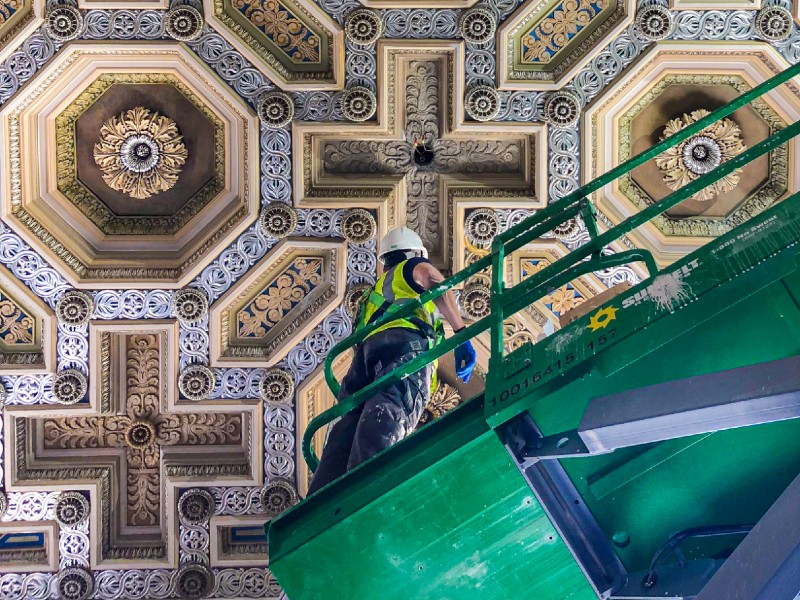
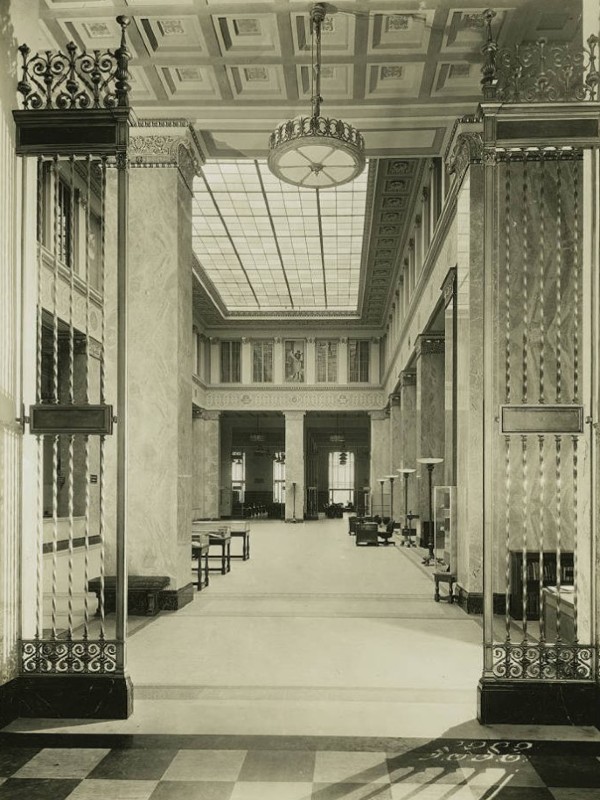
Often regarded as one of the most beautiful libraries in the world, the neo- Greco George Peabody Library was designed by Baltimore architect Edmund Lind and was completed in 1878. In 1967 it was transferred to the City of Baltimore and became a department in the nearby Enoch Pratt Free Library before it was transferred to The Johns Hopkins University in 1982
Montgomery County
The mid-century structure that was the Silver Spring Library, designed in the late 1950s by a Silver Spring-based architect Rhees Evans Burket, sat in a park-like setting. Although no longer used as a library, there is a happy preservation ending for the historic structure: in February 2018, Montgomery County Government announced the selection of the proposal submitted for a child development center that retains and reuse the existing structure. Construction is anticipated to be completed summer 2024.
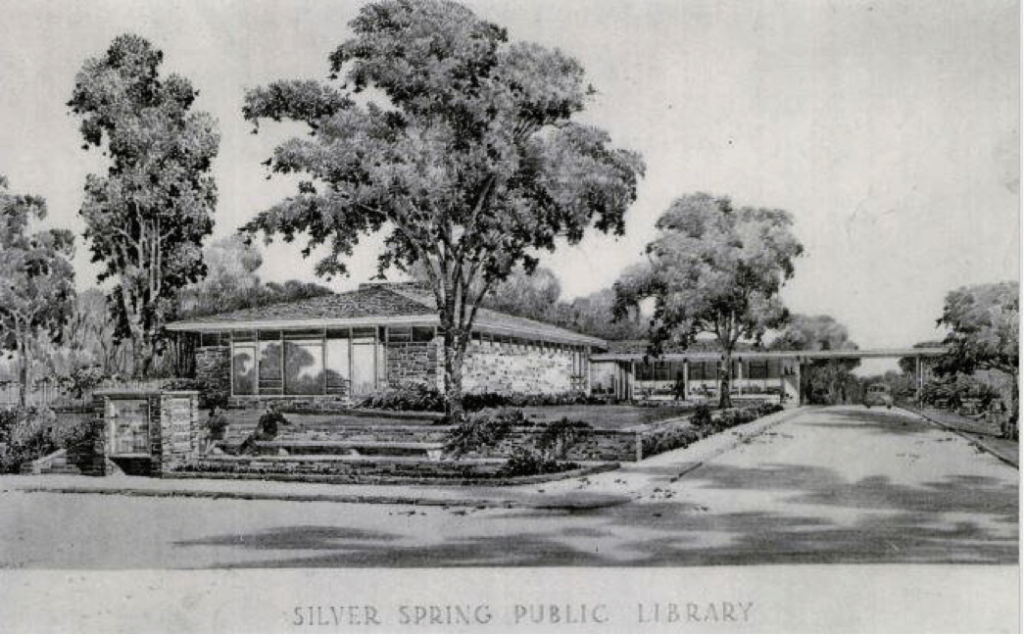
Allegany County
Located in the historic district of Cumberland in Allegany County, this Greek Revival style building was constructed between 1849 and 1850 and served as the first public school in the county before its current use as a library beginning in 1934. Today, the library houses the largest reference collection in the county library system, and has a room dedicated to local history.
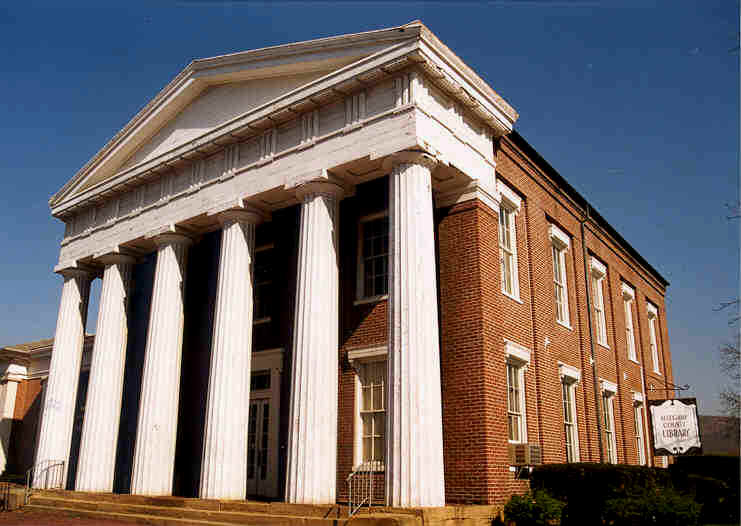
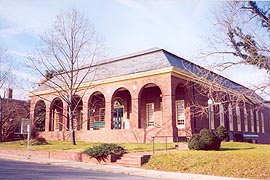
Dorchester County
A “free library” has been in operation since 1922 when it housed a collection of 1,500 after a donation from the club as an official “free library” collection. The current library building, on Gay Street in Cambridge, styled in Federal architecture, was donated by the City of Cambridge. Family histories, genealogy documents, land records, and Indian land records compiled by James McAllister, former historical society librarian and liaison with the public library are still housed in our Maryland Room.
